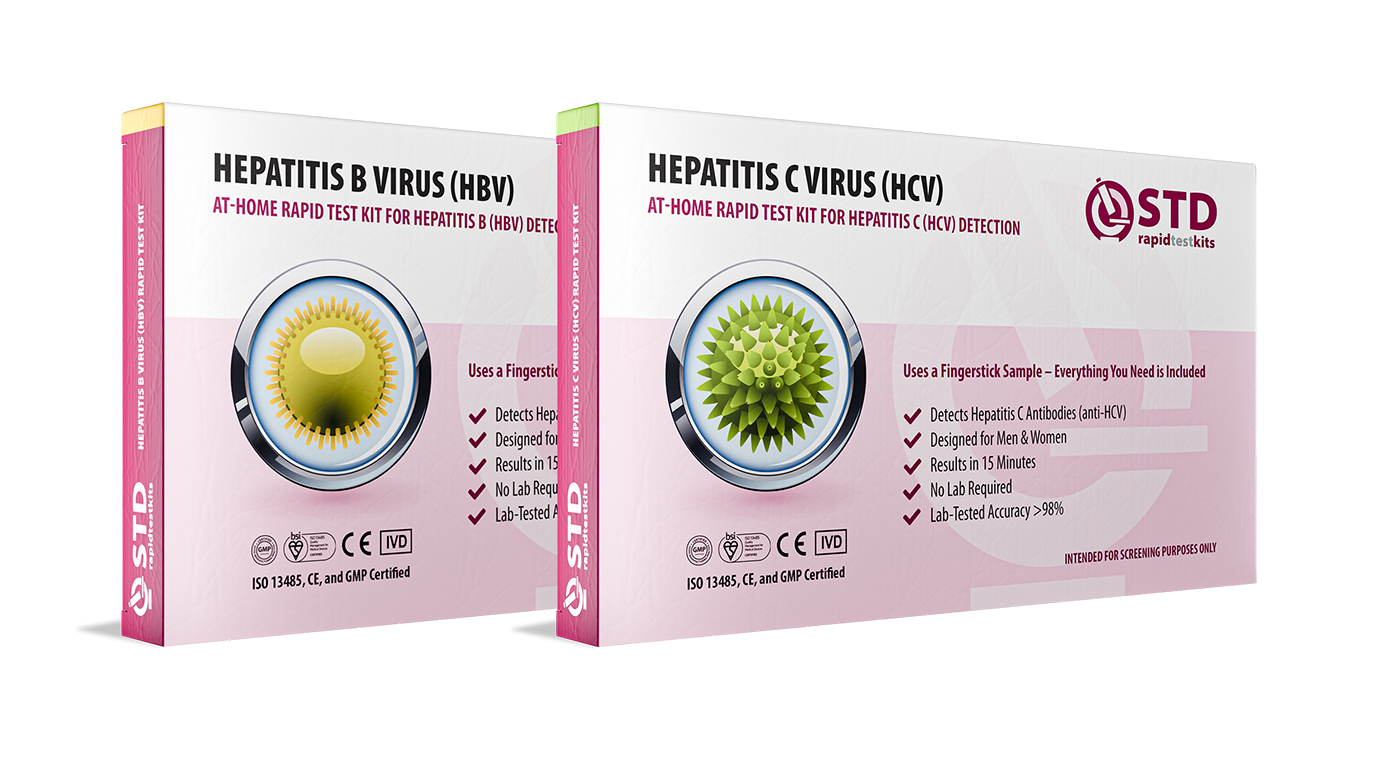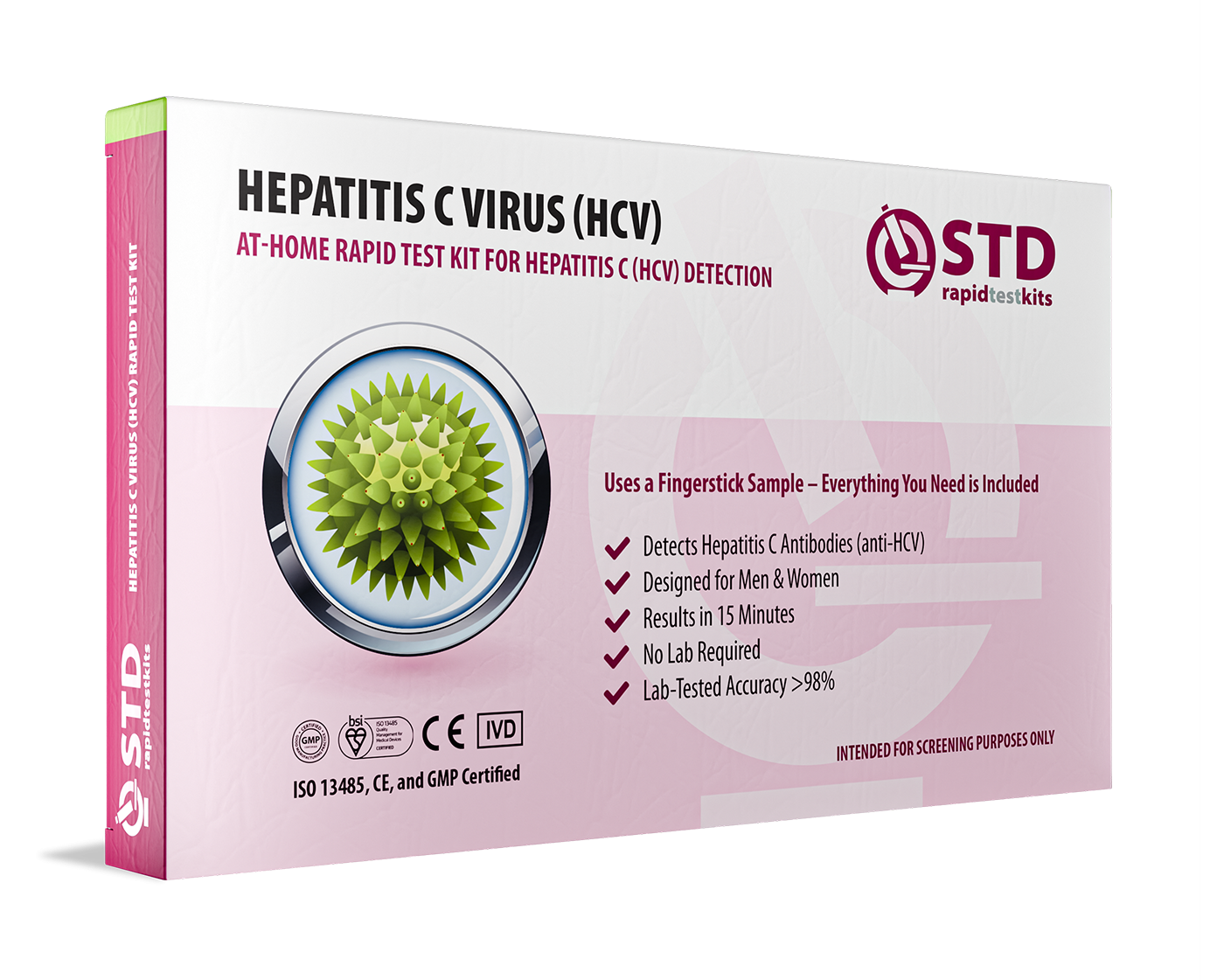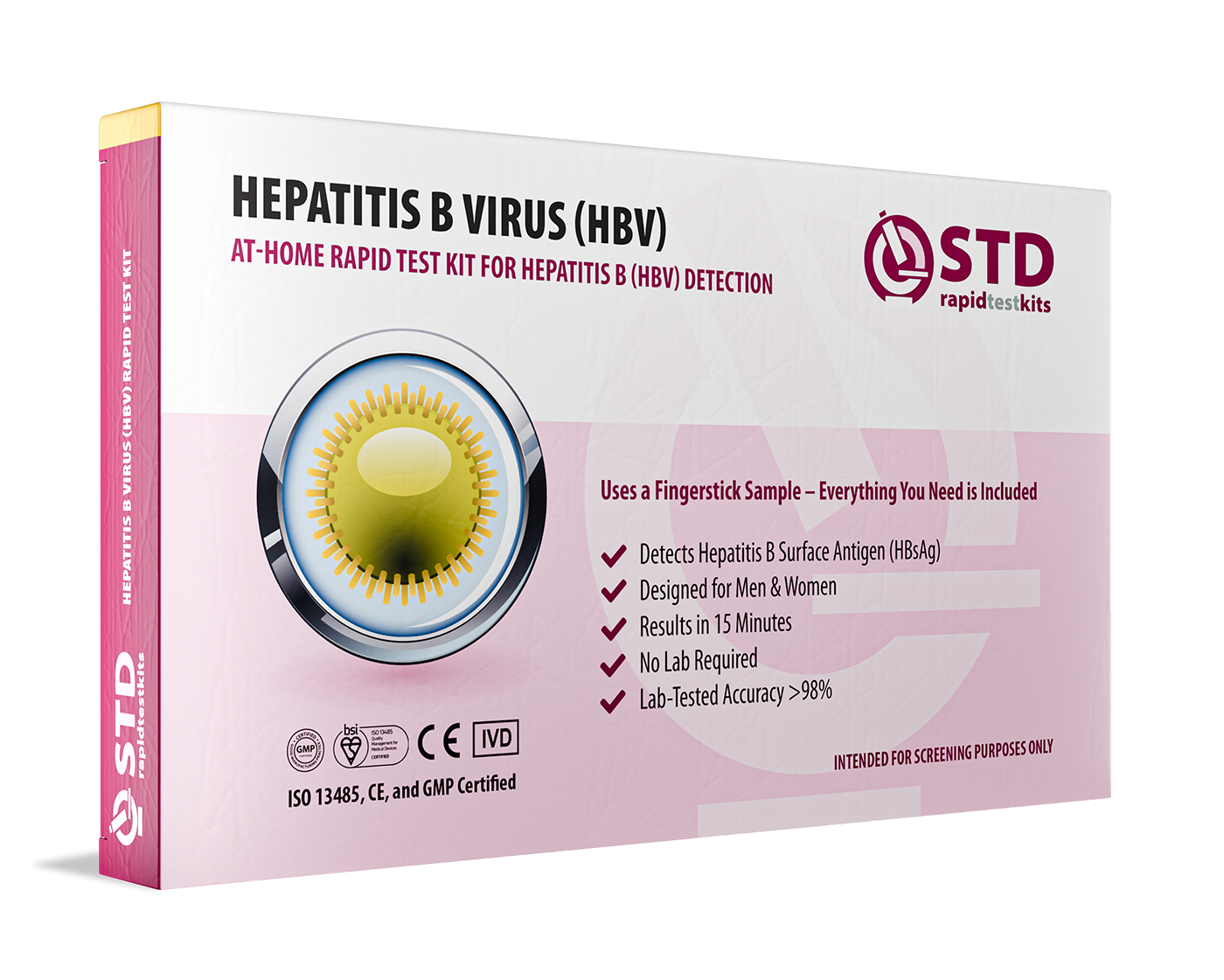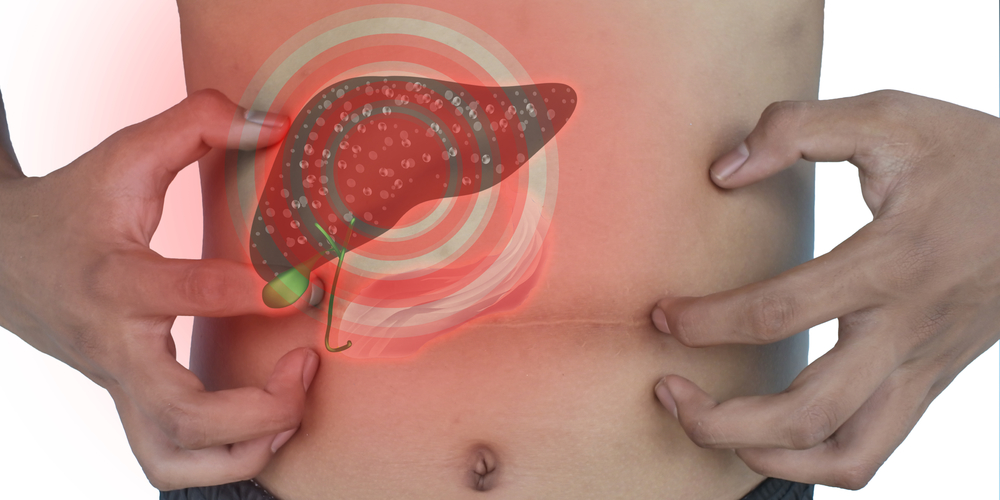Quick Answer: Hepatitis C and chronic alcohol use can both cause liver damage, but they attack differently. Hep C often causes silent, slow destruction, while alcohol-related damage tends to show up earlier and more aggressively. A liver test or Hep C home test can give clarity.
This Isn’t Just a Hangover, And You Know It
Jason, 36, used to drink hard on weekends, like a lot of people in his friend group. It wasn’t until a dull ache started gnawing under his ribs and his eyes looked “off” in the mirror that he thought something might be wrong. “I figured it was just booze catching up,” he told us. “But my doctor said it might be Hepatitis C. I was like, wait, what?”
That’s the truth most people don’t hear: Hepatitis C doesn’t always scream. Sometimes it just whispers over years, quietly building scar tissue in your liver until it’s too late. And when alcohol is involved, the damage speeds up like a match dropped on dry grass.
If your liver’s in trouble, you might feel:
• A sharp or dull pain under the right rib cage
• Fatigue that doesn’t improve with sleep
• Nausea after eating, especially greasy foods
• Brain fog or memory issues
• Itchy skin, dark urine, or pale stools
But here’s the catch: you might not feel anything at all.
When Silence Is a Symptom Too
One of the most dangerous myths about both Hepatitis C and alcohol-related liver disease is that you’ll feel it happening. Most of the time, you don’t. According to the CDC, as many as 50% of people living with chronic Hepatitis C don’t know they have it. That means their livers could be decades into the damage cycle before symptoms ever show up.
Meanwhile, alcohol damage can start with what looks like harmless bloating or fatigue. You might write it off as “just being tired from drinking,” when your liver is quietly accumulating fat (steatosis), inflammation (hepatitis), and eventually irreversible scarring (cirrhosis).
In fact, research from Mueller et al. shows that alcohol use can double or even triple the speed of liver damage in someone who also has Hepatitis C. This isn’t rare, millions of people in the U.S. have both factors in play, and don’t even realize it.
If you’ve ever had unprotected sex, shared straws or rolled bills, gotten tattoos in unlicensed shops, or injected drugs, even once, you could have been exposed to Hepatitis C. And if you drink regularly, your liver is already playing defense.

People are also reading: The Importance of Partner Notification After an STD Diagnosis
Two Paths, One Organ: How Hep C and Alcohol Wreck the Liver
Your liver’s a quiet overachiever. It filters everything from alcohol and toxins to hormones and medications. But it’s not invincible. Both Hepatitis C and alcohol can push it past the breaking point, just in different ways.
Hepatitis C is a viral infection. It hijacks liver cells and turns them into viral factories. Over years, even decades, it causes inflammation, fibrosis (scar tissue), and eventually cirrhosis. The key word here is slow. According to Schiff et al., up to 30% of people with chronic Hep C develop cirrhosis within 20 years, and some never show signs until it’s advanced.
Alcohol-related liver disease moves faster. Heavy drinking over months to years can cause fatty liver, alcoholic hepatitis, and cirrhosis, especially if your drinking is consistent. According to the Mayo Clinic, nearly all heavy drinkers develop fatty liver, and about 15% progress to cirrhosis.
Now put the two together. Drinking while living with untreated Hep C is like doubling down on destruction. One condition speeds up the other, and your liver can’t keep up.
Check Your STD Status in Minutes
Test at Home with RemediumHepatitis B & Hepatitis C Test Kit

 For Men & Women
For Men & Women Results in Minutes
Results in Minutes No Lab Needed
No Lab Needed Private & Discreet
Private & DiscreetOrder Now $49.00 $98.00
For all 2 tests
Case Study: “I Didn’t Even Know I Had Hep C, Until My Liver Was Shot”
Cynthia, 42, never thought of herself as someone who could have Hepatitis C. “I wasn’t an IV drug user. I was just a club kid in the early 2000s,” she told us. She had a couple of tattoos from friends, shared straws in bathrooms, and drank hard through her twenties. She quit drinking at 35 after a health scare, but the real shock came during a routine physical at 40, when her liver enzymes were off the charts.
“They said I had Hep C and it had been there for years. The alcohol had just been speeding it up,” she said. By the time she started treatment, she already had Stage 3 fibrosis, one step away from cirrhosis.
“I thought quitting drinking was enough,” she said. “I had no idea there was something else inside me the whole time.”
If you’ve ever had a moment like Cynthia’s, when a lab result or doctor’s comment made you realize you didn’t know your body as well as you thought, it’s not your fault. Hep C and liver disease are silent, slow, and culturally misunderstood. But they’re also treatable. And there are ways to find out what’s really going on, before it gets worse.
Why Most People Don’t Get Diagnosed, Until It’s Bad
Liver damage rarely announces itself in a way that makes people take action early. You might feel off, but still go to work. You might chalk it up to aging, poor sleep, anxiety. That’s not negligence, it’s normal. The symptoms of early-stage liver damage are so vague they get ignored until it’s too late.
Medical bias doesn’t help. If you drink, some doctors may pin your symptoms on alcohol without checking for viral hepatitis. If you’re queer, use substances, or have a history of trauma, you may have experienced dismissive care. And if you’re a woman or BIPOC, studies show you’re statistically less likely to be offered Hep C screening unless you ask for it. This isn’t just a health issue, it’s a systemic one.
According to the CDC, routine Hepatitis C screening is recommended for all adults at least once in their life, and yearly for people with ongoing risk factors. But in practice? Many people never get tested unless they advocate for it. That’s especially true if your symptoms are subtle, or if you’re navigating shame, sobriety, or stigma.
Which leads us to the question most people never ask, but should:
“What if this isn’t just alcohol? What if something else is hurting my liver?”
Myth #1: “I’d Know If I Had Hepatitis C”
This one’s a killer, literally. Hep C doesn’t give you a rash or a sudden fever. It doesn't make you puke or keep you bedridden. What it does is chip away at your liver cells while you keep living life. You could be infected for 20+ years and never know until your liver starts failing. That’s why millions of people discover Hep C during routine bloodwork for unrelated issues, or during hospitalization for liver complications.
And it’s not just about drug use or prison time. One of the fastest-growing groups diagnosed with Hepatitis C today? Middle-aged women who had tattoos or piercings in their youth, or received blood transfusions before the early ‘90s. If you were born between 1945 and 1965, you’re statistically more likely to have Hep C than any other generation.
There’s also a growing number of queer and bi men who are being diagnosed in their 30s and 40s, especially if there was alcohol use, party culture, or sex without condoms during periods of higher risk. It’s not about blame, it’s about giving people the information they were never taught to begin with.

People Are Also Reading: How Accurate Are At-Home STD Test Kits?
Myth #2: “I Just Need to Stop Drinking and My Liver Will Heal”
That depends on what’s causing the damage. If alcohol is your liver’s only enemy and you catch it early enough, yes, your liver can regenerate over time. But if you’re also living with Hep C, quitting drinking won’t be enough. The virus will continue to inflame and scar your liver even if you’re sober.
According to Xu et al. (2021), alcohol accelerates Hepatitis C viral replication and weakens your immune response, meaning even light drinking can worsen liver damage if HCV is present. That means someone who thinks they’re doing everything right could still be sliding toward cirrhosis and not know it.
This is why testing is essential, not just for peace of mind, but for survival. And the good news? You don’t have to wait in a clinic, feel judged, or explain your entire life to get answers.
You Deserve Clarity, Not Judgment
Whether you’re questioning your liver health because of your drinking, your past, your symptoms, or a gut feeling, you deserve to know what’s going on without shame or delay. You can test for Hepatitis C from home, discreetly and safely, using a finger-prick or small blood sample. These tests are lab-certified, and if you test positive, treatments are available that can completely cure Hep C in as little as 8 to 12 weeks.
This isn’t about punishment. It’s about protection. Your liver is the organ that keeps your entire body running, filtering toxins, managing energy, regulating hormones. If you’re noticing something off, listen. If you’re scared, that’s okay. The answer doesn’t change whether you’re sober, in recovery, or figuring things out one day at a time.
Take control before the damage goes further. Even if your doctor didn’t ask. Even if it’s been decades. Even if you feel fine.
This at-home Hepatitis C test kit lets you skip the wait, the stigma, and the second-guessing. It’s confidential, fast, and gives you real answers.
Check Your STD Status in Minutes
Test at Home with RemediumHepatitis C Test Kit

 For Men & Women
For Men & Women Results in Minutes
Results in Minutes No Lab Needed
No Lab Needed Private & Discreet
Private & DiscreetOrder Now $33.99 $49.00
When Risk Looks Different Than You Thought
There’s this outdated mental image of what a person with liver disease “looks like”, a gaunt man in his 60s with yellow skin and a bottle of whiskey. That stereotype still shapes how people view Hepatitis C and alcoholic liver disease. But it’s not the truth anymore.
Today, Hep C shows up in queer folks who partied hard in their twenties and now live quiet lives. It shows up in moms who got C-sections or transfusions before hospitals screened blood. It shows up in tattooed millennials, in Black and Indigenous communities, in people who’ve struggled with opioids or stimulants, or even just shared a bathroom counter and a straw.
And alcohol-related liver disease? It’s rising fastest among women, particularly between ages 25 and 44, according to the CDC. Women’s bodies metabolize alcohol differently, and many were never taught that even “social” drinking could harm their liver over time. Especially when paired with stress, trauma, or untreated Hep C.
There’s no one face of liver disease anymore. Which means everyone deserves to be part of the prevention conversation, without fear, blame, or dismissal.
What Sex Has to Do with It, And What It Doesn’t
Let’s clear this up: Hepatitis C isn’t technically classified as a sexually transmitted infection, but it can absolutely be transmitted through sex, especially when there’s blood involved. That includes anal sex, rough sex, or sex during menstruation. Condom use helps. So does testing, transparency, and safer sex supplies.
If you're queer, trans, or nonbinary, chances are you’ve already navigated healthcare systems that weren’t built for you. That makes it even harder to access judgment-free testing or liver health screenings. You might’ve been told your symptoms were anxiety. You might have been asked invasive questions. You might have been assumed to be “clean” just because you look healthy or because you don’t inject drugs.
Here’s the truth: sex and substance use don’t make you dirty. Not knowing your status doesn’t make you irresponsible. You deserve tools, language, and medical care that protect your whole self, including your liver.
If you’re worried about hurting your partner or getting blindsided by a diagnosis later on, testing now is an act of love. So is quitting, cutting back, or rethinking how alcohol fits into your sex life or your healing process. This is harm reduction, not shame. And it works.

People are also reading: Living with Hepatitis: Tips for Managing a Chronic Condition
“I Thought I Was Just a Drinker. Turned Out I Was Sick.”
Dev, 38, got sober after a DUI and a breakup, thinking life would start to get better right away. “But I still felt like trash. I had no energy, weird pain in my side, and my sleep sucked,” he shared. “I kept thinking, what if the damage is already done?”
His doctor ran liver panels. That’s when the Hep C test came back positive. “I was floored,” he said. “I’d done coke a few times, shared straws, messed around in my twenties, but I never thought it would show up this late.” Dev had early-stage cirrhosis. He’s in treatment now. He’s rebuilding. And he’s furious no one ever warned him about the synergy between alcohol and Hep C.
“I feel like I got set up,” he said. “Like the system just let me ride into liver failure because I didn’t look like the ‘right kind’ of patient.”
Stories like Dev’s aren’t outliers, they’re the norm. That’s why you’ll hear this message again and again in sexual health and harm reduction spaces: silence doesn’t mean safety. Testing is power. And treatment works.
Check Your STD Status in Minutes
Test at Home with RemediumHepatitis B Test Kit

 For Men & Women
For Men & Women Results in Minutes
Results in Minutes No Lab Needed
No Lab Needed Private & Discreet
Private & DiscreetOrder Now $33.99 $49.00
Your Liver Is Trying to Keep You Alive, Help It Out
Here’s what your liver wants: space to heal, less to process, and information. You don’t have to become a wellness monk or give up every indulgence. But if you’re drinking regularly, skipping checkups, or putting off testing for Hepatitis C, you’re asking your liver to carry more than it can handle long-term.
If you already know you have Hep C and you’re still drinking, the most protective thing you can do, besides seeking treatment, is to cut back or stop. Even moderate drinking can triple the rate of liver scarring in people with Hepatitis C, according to Lieber et al.
If you’ve quit drinking but never got tested for Hep C, don’t assume everything’s fine. You could still have low-grade inflammation or silent fibrosis that needs attention.
If you’re using drugs, having rough sex, or sharing gear, no shame. Just consider adding Hep C testing to your routine, just like you would with STIs. You can order a confidential Combo STD Home Test Kit that screens for the most common infections, including Hepatitis C. It’s fast, private, and no one needs to know but you.
FAQs
1. Is it possible to contract Hepatitis C without needle use?
Yes. Hep C can spread through shared straws, rolled bills, tattoo tools, and even some kinds of sex that involve blood.
2. How does it feel to have pain in your liver?
A lot of people say it feels like a dull ache or pressure under their right ribs. It can also spread to their back or shoulder. But not everyone can feel it.
3. How long can Hep C stay in your body without symptoms?
Decades. Many people have Hep C for 20+ years before symptoms or complications show up.
4. Does quitting alcohol fix liver damage?
Sometimes. If damage is in early stages, the liver can regenerate. But if Hep C is also present, the damage can continue even after you stop drinking.
5. Can you have both alcoholic liver disease and Hepatitis C?
Absolutely. And when combined, they accelerate liver damage much faster than either alone.
6. Is Hepatitis C curable?
Yes. Direct-acting antivirals (DAAs) can cure Hep C in most people within 8–12 weeks.
7. Is Hepatitis C considered an STD?
Not traditionally, but it can be transmitted sexually, especially during anal sex, sex involving blood, or rough contact.
8. Can I test for Hep C at home?
Yes. You can order a lab-grade at-home test kit that requires only a small blood sample.
9. What’s the first sign of liver failure?
Symptoms may include confusion, fatigue, jaundice, or sudden weight changes, but many signs don’t show until late stages.
10. Do I need to tell my partner if I have Hep C?
Ethically, yes, especially if you’re sexually active. But transmission through casual sex is low if precautions are taken.
You Deserve Answers, Not Assumptions
This isn’t about whether you drank too much or waited too long. It’s about what you do now. Your liver might be hurting from something you can’t see, Hepatitis C, long-term alcohol damage, or both. But here’s what matters most: you can still do something about it.
Getting tested doesn’t just give you data. It gives you direction. Treatment for Hepatitis C is more effective now than ever, with cure rates above 95% and no need for injections or hospital visits. And if alcohol is in the picture, cutting back, even a little, makes a measurable difference.
You don’t need to be perfect. You just need to know what’s going on inside your body. Don’t wait for symptoms to scream when your liver’s been whispering for years.
This at-home combo test kit checks for Hepatitis C and other common STIs discreetly and quickly. No appointments. No awkward conversations. Just clarity.
Sources
2. CDC – Testing for Hepatitis C: Who Should Be Tested and When
3. Mayo Clinic – Alcoholic Hepatitis: Symptoms, Causes, and Progression to Scarring
4. Mueller et al. (2009) – Alcoholic Liver Disease and Hepatitis C Co‑infection Progression










